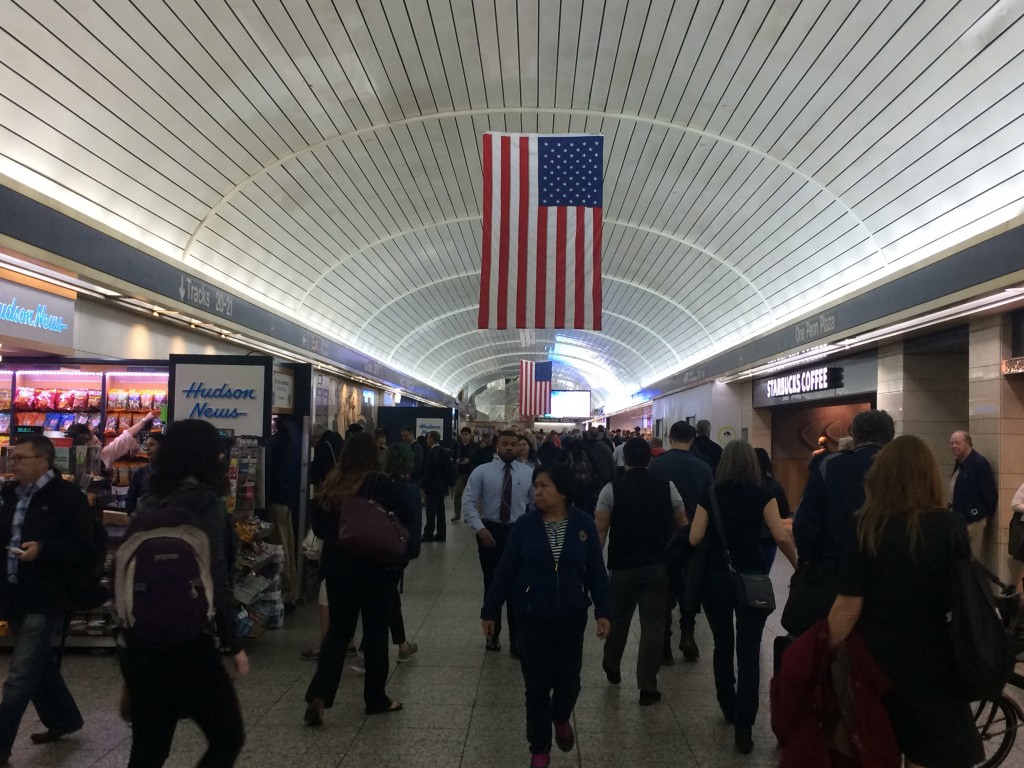Tonight the Amtrak emergency repair work at New York’s Penn Station will commence, thus launching what Governor Cuomo has dubbed the “summer of hell”. The real impact will begin with Monday’s peak hour service. The work will affect Amtrak, New Jersey Transit, and Long Island Rail Road (LIRR) commuters and is slated to endure for eight long weeks.
Penn Station is the busiest commuter rail station in the country providing over 650,000 weekday commuter, transit and intercity trips, so the planned outages have the potential to cause substantial stress and confusion for a maximum number of riders. The LIRR provides the most service of the three in the station, with more than 230,000 weekday trips. The 20 percent reduction in evening trains and the dozen morning rush trains that will be canceled or rerouted from Penn will affect nearly 10,000 LIRR commuters who will need to be in the know, especially if unexpected glitches should arise. Effective communication is paramount to surviving this summer.
The repairs must be completed.
Without repairs, service disruptions caused by deferred maintenance will continue to increase, crippling the Long Island economy and endlessly frustrating stranded commuters. The Long Island Rail Road Commuters Council (LIRRCC) is therefore closely following the Penn Station developments. The Council called for federal financial assistance, rider fare relief, and demanded the LIRR develop a comprehensive maintenance and repair and operations plan and communicate it with a clear summer service plan.
LIRR must improve its communication efforts.
LIRR has a long track record of not effectively communicating with riders, and should use this unfortunate opportunity to improve its efforts. In a recent press statement, LIRRCC Chair, Mark Epstein applauded Amtrak for acting responsibly in addressing the deferred maintenance and for committing to focus on the ‘customer experience’ during this difficult time. The Council is watching to see if this effort influences improved communication with LIRR riders. It was notable that Amtrak and New Jersey Transit communicated their work plans and summer schedule to riders two weeks before the LIRR which waited until June 12th to inform its passengers of the service changes. During the delay LIRRCC’s Chair Epstein called for the MTA/LIRR to step up its game:
Amtrak and the Long Island Rail Road have a duty to this region to complete and release service schedules now so those who depend on the Rail Road may make their own plans for this summer’s disruptions. Both Amtrak and New Jersey Transit have already released their summer services plans. Riders continue to ask the LIRR: Where’s the Plan?
MTA-LIRR releases a new summer service website.
Four weeks before the scheduled service reductions were scheduled to take place the LIRR released its service plans to the public. The website offers information riders will need to navigate the summer, with helpful hints for planning ahead, branch service changes, and information regarding MTA service alerts, discounts, subway connections, bus service, and ferry service. The website is the right path forward in improving customer communications.
LIRR must continue this communication tool in a timely manner moving forward.
New Yorkers know all too well that everything does not always go as planned during service disruptions. Amtrak has said the work will take eight weeks during which LIRR service will run according to the updated summer plans. However, as LIRRCC Chair Epstein stated:
It’s very nice that they’re telling us about the planned outage. What happens when there’s also an unplanned outage?
The LIRR must effectively communicate those changes to the riders in a timely and clear way. Otherwise, the ‘customer experience’ will be far worse than imagined.
So far, the LIRR has pledged an “aggressive public awareness campaign” to keep riders informed and the new website is a product of this effort. The LIRR should use this new website as a learned lesson on how to communicate moving forward. Providing riders with this type of detailed information that is accurate and on-time will build the public’s confidence in the MTA-LIRR.
We will continue to encourage the LIRR to effectively communicate any service changes. As work gets underway, we will monitor, report, and call for needed actions moving forward.
